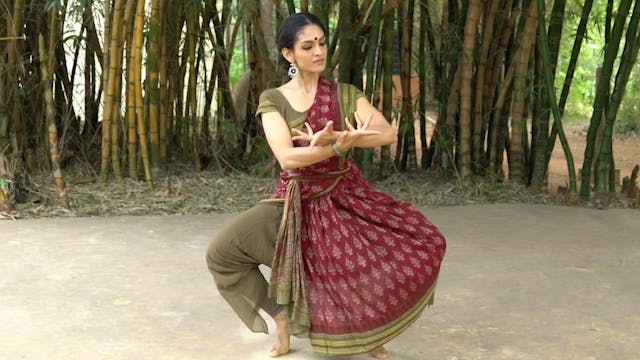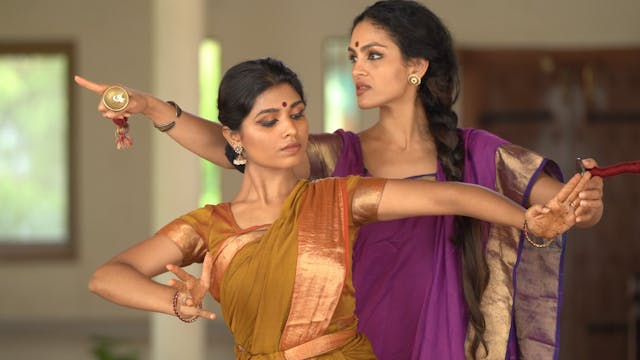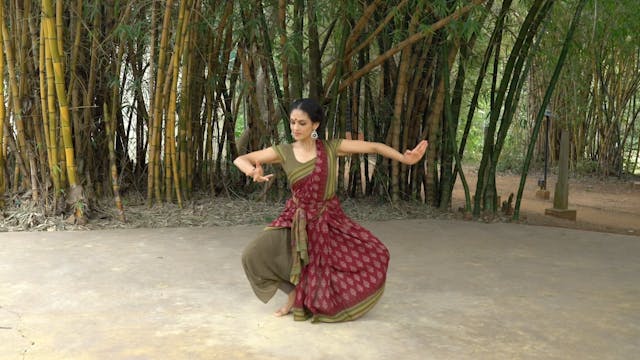Parval Adavu 3
Playlist 12
•
3m 21s
Paraval literally means to spread. Some schools of thought also call the Paraval adavu, the 'Pakkadavu' as it moves to the side while sliding. Some others change the name based on the way the foot articulates with the floor. A few of the types of Paraval, can be referred to as Marditam adavau, as it uses the kicking movement of the foot. For simplicity we will refer to the entire series as Paraval. The Raadha Kalpa method introduces and practices over 8 types of Paraval adavus.
Things to keep in mind.
- Make sure your hip stays even and thigh pushes out when you lift your leg up.
- Finish all four counts each time and join your feet.
- Be clear with the tilt of your head. We tilt the head in anchitam toward the direction of the pointed toe so that the hips are balanced. This is the first variation, so please try to follow this.
- Make sure to turn the leg out completely before striking the floor in the last Paraval adavu, which is also the variety that can be called Marditam adavu because of the kicking action of the foot.
Up Next in Playlist 12
-
Kuditta Mettaduvu
Pointers for Kuditta Mettadavu:
Try to go down instead of hopping up each time you snatch onto your heels.
Keep dropping your tailbone and pushing your thighs back.
When you bend to the side, try not to have any form of a forward bend.By the time you progress to the Kuditta mettadavu, your l...
-
'Ta hata jumtari ta' Adavu: Instructions
The "Ta hata jumtari ta" Adavu, is named after the syllables that are used in the practice of the Adavu. This practise is common amongst most lineages of Bharatanatyam.
The Adavu is a combination of various movements. It has the 'di, di tai" action with the Tattu and Naatu, from the Muktaya ada...
-
Ta hata Jumtari ta Adavu
The "Ta hata jumtari ta" Adavu, is named after the syllables that are used in the practice of the Adavu. This practise is common amongst most lineages of Bharatanatyam.
The Adavu is a combination of various movements. It has the 'di, di tai" action with the Tattu and Naatu, from the muktaya ada...


